Congratulations! You finally made the decision to transition to natural hair or simply do the Big Chop (BC). Hooray!! Let’s release the balloons and start celebrating! Wait. What?! You’re worried that going natural might be more expensive than having relaxed hair?! No, no, no girl. I find that this is a common concern among newbies in the natural world and there are two ways you could look at this. Yes, it’s true, and No, you can have some budget control when transitioning to natural hair.
Before we get started on how you can control your “dough” I hope you had the chance to read a few posts here such as Understanding Your Curly Hair, How To Transition To Natural Hair, Shampoo On Curly Hair, How To Care For Transitioning Hair. These posts will give you basic information from which you can build upon. Have a look around Curly Hair Lounge and you’ll also find other relevant posts.
Making Use Of Your Own Products
You don’t need to throw away your unfinished products just because you’ve started this journey. I do, however, have a few recommendations. Let’s look at what you can do with some of your products.
Shampoo – If you don’t co-wash (conditioner wash) I recommend you use a low or sulphate-free shampoo. These are less harsh on the hair and won’t strip your hair of its natural oil (sebum). If, on the other hand, you have your regular shampoo you can reduce some of its negative effects on your hair by diluting it with de-ionised water or doing an oil pre-poo before shampooing.
Conditioner – If you still have your conditioner you can finish it, and if you notice it doesn’t have as much slip as it used to don’t worry, this is common when you go natural. One solution for this is to just use this conditioner as a pre-poo to help detangle your hair before shampooing. You know, just to get save time for later. You don’t need to detangle exhaustively. Once the conditioner has finished, you can buy a product that caters for natural hair needs better. You can also buy a regular conditioner and increase its moisture power by glycerin (mix on a need basis). These are relatively cheap and the former you probably already have in your kitchen.
Deep Conditioner – If you weren’t regularly deep conditioning your hair, then now is the time to do it. Do it a minimum of two times a month, but your hair will reap more benefits if you do it weekly. If you don’t have one in your bathroom shelve then I suggest you head over to your nearest hair supply store and buy one. It doesn’t have to be a high-end product. Nowadays, hair products are conceived to provide you with at least the minimum amount of nutrients for your hair. Of course, natural ingredients are always better than synthetic ones, and depending on your choice, you need to be aware of what ingredients you’re putting on your hair. Read more about Natural Hair Product Ingredients.
DIY is also another option, and there are a few recipes here on the blog. However, I prefer you find a proper formulated deep conditioner. DIY may be okay once in a while but has a regular practice it won’t cater to all your hair needs. The molecular structure of most ingredients is too big to benefit all structures of the hair ingredients, it mainly caters to the cuticle layers of the hair, not the cortex. Still, you can always make you current deep conditioner a bit better by doing a little DIY. If it lacks moisture add some glycerin to a deep conditioner or even some honey (mix on a need basis, don’t DIY everything). as needed). Know more about making your own deep conditioners.
Add-Ons To Your Hair Regimen
Yes, you will need a few more products to complete your hair product essentials. Because you don’t want to break the bank, and honestly, you don’t need to here are my suggestions.
Vegetable Oils – You can use the extra virgin olive oil used in your kitchen or you can invest and choose from a multitude of vegetable oils. You can choose according to your hair’s needs (anti-dry scalp, itchiness, hair loss) or your hair goals (growth, shine, smoothness). You have castor oil, jojoba oil, argan oil, grapeseed oil, coconut oil and many other. You can use these in many ways such as your Pre-poos, to do a DIY for a deep conditioner, to seal your hair and protect your ends.
Moisturiser – When it comes to moisturisers you will have to do a bit of research and choose one for your hair’s needs and this means trying out a few until you find one you like. You will find that prices range greatly and you’ll need to find one that fits your budget. When I started my hair journey I did my own moisturiser, which involved an initial investment, however, I have moved away from it after I learned how to read product ingredients and find what really works and moisturised curly hair. it lasts for months. If you want to do a DIY butter using butter check Naptural85‘s video below where she shares two recipes for a creamy and fluffy shea butter.
Styler or Gel – As happens with your moisturiser, you will need to try several products and prices will also vary. You will find such options as Kinky Curly Curling Custard, Miss Jessie Curly Meringue, Shea Moisture Curl & Style Milk or EcoStyler Gel. Alternatively, you can make your own styler and gel and it will be cheaper for you in the long run. Have a look at Bola Cooper’s recipe and Dominique’s basic flaxseed gel recipe (you can add other ingredients). However, this may not give the long lasting hairstyle you’re seeking.
As you can see, there are options that don’t involve breaking the bank. You can adjust some of your products, do some DIY or simply find affordable products on the market. Yes, it’s possible. Just don’t turn yourself into a product junkie and you’ll be within budget. These, I believe, are your hair product essentials when transitioning to natural on a budget.
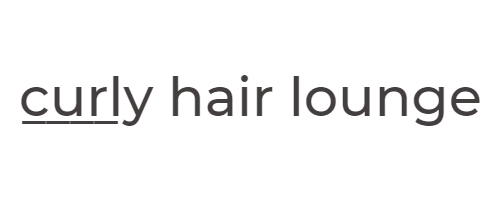
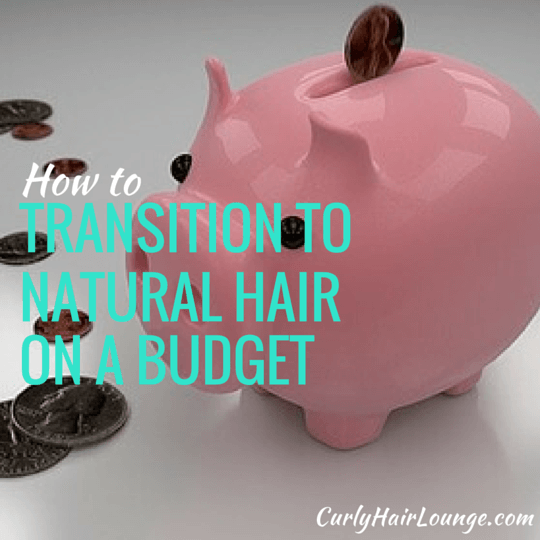
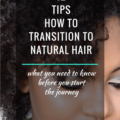
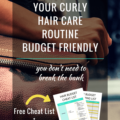

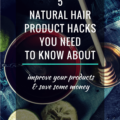
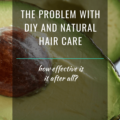
6 thoughts on “How To Transition To Natural Hair On A Budget”
Prefect for me, I’ve had short hair for years now, but I have a 2 year old daughter with beautiful hair, and I only use natural products like, oils, Shea butter and Aloe Vera, but I’m always looking to educate myself on natural products.really need some good methods. Will be back for more great content
Hi Casmin, it’s always better to use natural products. Feel free to keep coming back I’ll be happy to see you here in the comments section. 🙂
I have been doing deep conditioning treatments for many years now and it helps tremendously! I also take biotin supplements to help my hair grow. Biotin is in shampoo and conditioners as well but they tend to be on the pricier side of things so I rarely buy them.
I love a good EVOO conditioner. My hair is always shinier and smoother afterwards.
Thanks for sharing such great tips!
Regular deep conditioning has been fundamental in my transitioning journey and the difference in hair breakage is shocking. One other thing that helped me a lot was pre-pooing with EVOO. Isn’t this oil amazing! If you don’t want to spend a lot in vegetable oils this is the one to reach for.
Great article! Thanks for sharing all of these cost effective DIY hair solutions. Like you said, it will cost a bit to get everything together, but in the long run there will be a savings since trips to the salon are quite costly, never mind the damaging your are doing to your hair with relaxers and/or colour.
The initial cost is nothing compared to what you would have to spend if you had to buy all the products you can now make.Plus, the benefits for your hair compensate everything.